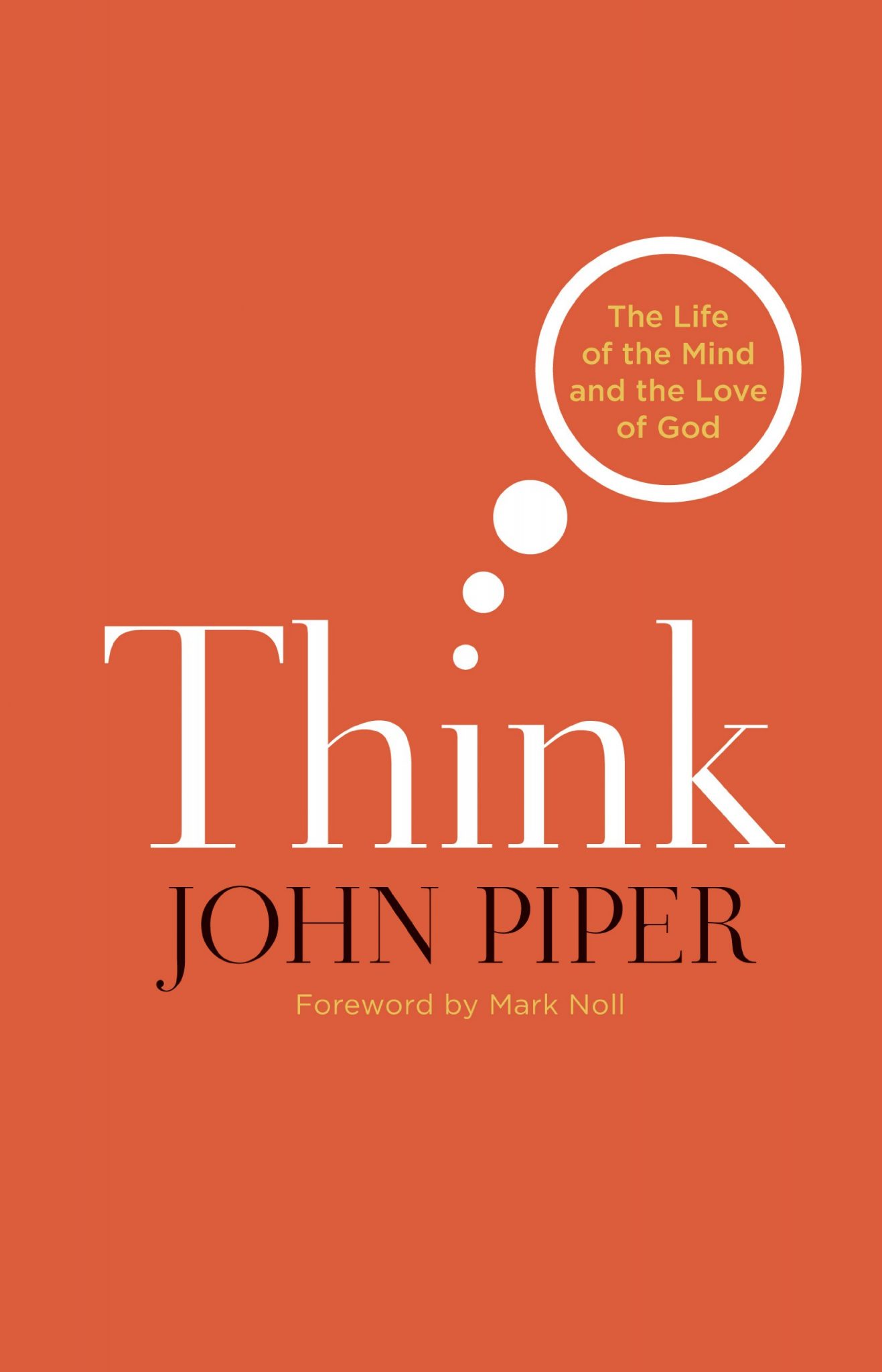One cannot love God fully apart from treasuring him with all of one’s heart, soul, mind, and strength. In Think: The Life of the Mind and the Love of God, John Piper explains how the heart and the mind are intended to glorify God together. Great thoughts of God should lead to great love for God and for all those made in his image. According to Piper:
This book is a plea to embrace serious thinking as a means of loving God and people. It is a plea to reject either-or thinking when it comes to head and heart, thinking and feeling, reason and faith, theology and doxology, mental labor and the ministry of love. It is a plea to see thinking as a necessary, God-ordained means of knowing God. Thinking is one of the important ways that we put the fuel of knowledge on the fires of worship and service to the world. (15)
This book is an appeal from a passionate Christian thinker on the importance of thinking in the life of the Christian.
Summary
In chapter one, Piper describes his intellectual pilgrimage and how the life of the mind was awakened in him. It seems no Piper book would be complete without a reference to his dear dead friend, Jonathan Edwards. So in chapter two, Piper unpacks his profound personal encounter with Edwards and his vision of the Trinitarian nature of God. For Piper it was Edwards who provided “the deepest foundation for how thinking and feeling relate to each other” (18).
Piper then turns to defining the task of thinking in chapter three by connecting it to the act of reading. In chapters four and five, Piper relates the role of thinking to the process of coming to faith in Jesus. Piper explains in chapter six the role of thinking in fulfilling the Great Commandment-to love God. According to Piper, “loving God with the mind means that our thinking is wholly engaged to do all it can to awaken and express heartfelt fullness of treasuring God above all things” (19).

Think: The Life of the Mind and the Love of God
John Piper
We often pit thinking and feeling against each other, especially when it comes to the Christian experience. Glorifying God with our minds and hearts, however, is not either-or, but both-and. Focusing on the life of the mind will enable you to know God better, love him more, and care for the world. This book will help you think about thinking, and about how the heart and mind glorify God together.
Piper then turns his attention to two perennial enemies of the life of the mind: relativism (chapters seven and eight) and anti-intellectualism (chapters nine to eleven). Piper warns Christian thinkers against the deceitful dangers of pride in chapter twelve. Finally, in chapter thirteen Piper argues that “all thinking-all learning, all education, all schooling, formal or informal, simple or sophisticated-exists for the love of God and the love of man” (21).
Analysis
There are several books related to Christian discipleship and the life of the mind: Mark Noll’s Scandal of the Evangelical Mind, Os Guinness’s Fit Bodies Fat Minds, J. P. Moreland’s Love Your God with All Your Mind, James Sire’s Habits of the Mind, Gene Veith’s Loving God with All Your Mind, and most recently Bradley Green’s The Gospel and the Mind. Piper’s emphasis on biblical exposition in this volume makes his contribution unique and also serves as its greatest strength. Think is an extended meditation and thoughtful application of several biblical texts beginning with Proverbs 2:1-6 and 2 Timothy 2:7.
Piper identifies the ultimate goal in life as beholding and enjoying the glory of God, especially his glorious grace in the work of Christ. Piper infers:
Therefore, the main reason God has given us minds is that we might seek out and find all the reasons that exist for treasuring him in all things and above all things. He created the world so that through it and above it we might treasure him. The more we see of his surpassing greatness and knowledge and wisdom and power and justice and wrath and mercy and patience and goodness and grace and love, the more we will treasure him. And the more we treasure him, the more he is consciously and joyfully glorified. The point of this book is that thinking is a God-given means to that end. (15–16)
With this foundation in place, Piper then beckons followers of Jesus down the dangerous and delightful path of intellectual obedience.
We observe carefully. We ask questions. And we work hard with our minds to try to answer the questions. And we weave the answers into an evermore extensive fabric of understanding that helps us live lives of love to the glory of Jesus Christ. (55)
Conclusion
In this thought-provoking book, Piper seeks to join together head and heart, reason and faith, theology and doxology. He serves his readers by identifying some of the chief obstacles in the way of rigorous Christian thinking. He exposes the immorality of relativism and the dangers of anti-intellectualism. High school and college students will find a Christ-centered way to frame their academic studies. Thinkers will find encouragement to persistently pursue a humble way of knowing that both honors Christ and loves people. Non-thinkers will be wooed to pursue a more robust life of the mind. And all readers will find a clear, wise, and passionate primer for joyful Christian thinking.




































